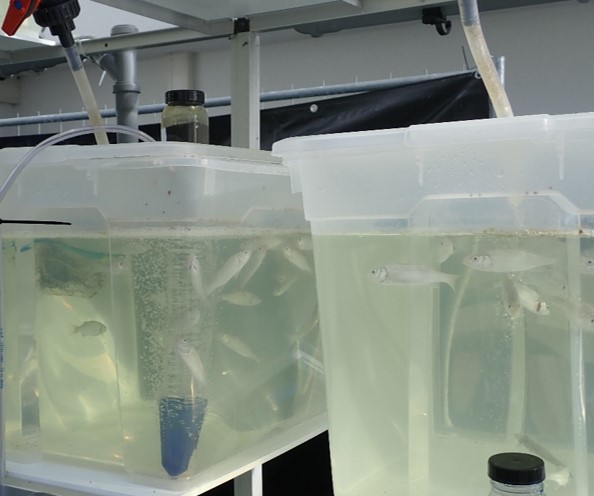Global warming results in increased climate variability and extreme weather conditions with abrupt environmental changes more likely to occur. Globally, temperature and precipitation patterns have changed markedly in recent decades and are predicted to change even more in the future as a result of anthropogenically driven activities. Fluctuations in environmental variables affect many aspects of physiological responses in fish, including feed intake, metabolism, growth, reproduction, behavior, survival and distribution of fish.
The European sea bass (Dicentrarchus labrax L.), a marine teleost, widely distributed throughout the Mediterranean Europe and extensively used for aquaculture, is of great commercial and ecological importance. Sea bass grows best at temperatures from 22° to 24° C with 26 to 32 ppt salinity. This fish is sensitive to temperatures below 6o C and over 30o C, which leads to impairments of growth, physiology, and high mortality rates. In the southern Mediterranean, the maximum water temperature in ponds is periodically exceeding 33-34° C during late spring to August, whereas, in autumn, the temperature of lagoons can decrease to 5-6 °C.
Little work has been published on euryhaline fish exposed to extreme temperature and salinity stress for a prolonged period.
To face the global and regional climate changes, a thorough study on the metabolic and molecular stress responses of euryhaline fish exposed to extreme environmental conditions (temperature and salinity) is necessary. In addition we need to increase our knowledge about potential compensation measures of stress through dietary manipulation.
This project aims to investigate different metabolic and molecular stress response indicators resulting from changing environmental parameters. This will help to identify critical thresholds and optimal condition windows in order to keep fish healthy in spite of climate changes.
Project Partner |
|---|
| Alfred Wegener Institute for Polar and Marine Research (AWI), Bremerhaven, Germany |





